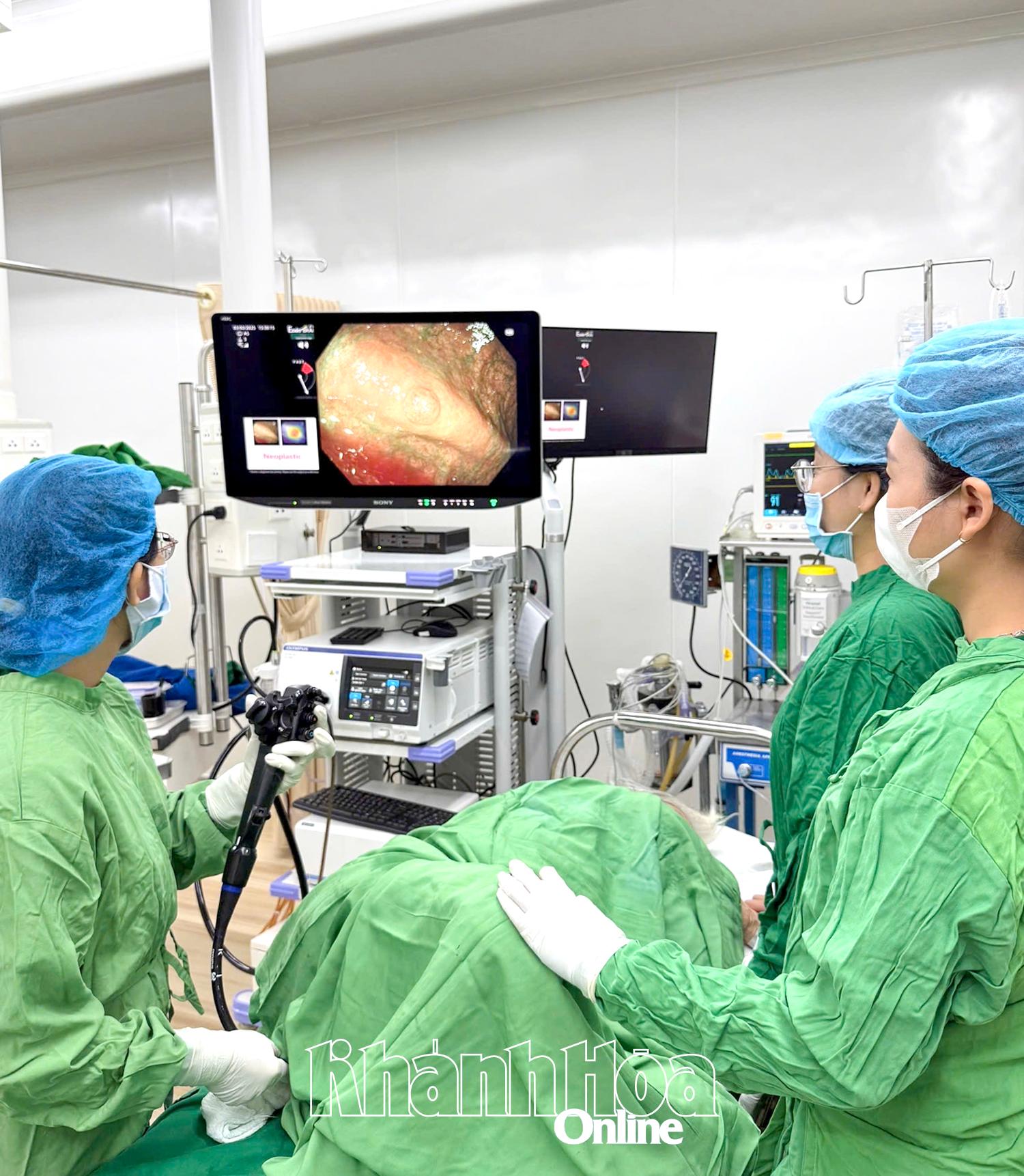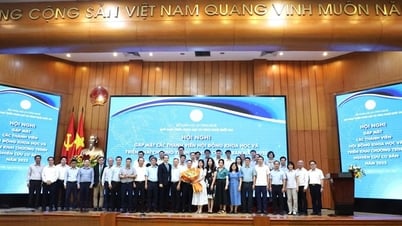Many efforts
To build a smart healthcare system, five key issues are needed: digital infrastructure, electronic health records, artificial intelligence combined with predictive analytics, telemedicine combined with virtual healthcare, and cybersecurity. In Khanh Hoa, the provincial public hospital system as well as private hospitals have been implementing solutions towards building smart hospitals, thereby gradually forming a flexible and modern smart healthcare network.
Clearly identifying the role of the core hospital of the South Central Coast region in providing advanced and specialized medical services, in recent years, the Provincial General Hospital has integrated the hospital management information system (HIS); developed smart medical services into online medical examination registration, looking up test results via mobile applications, cashless payments; invested in equipment systems integrating artificial intelligence applications; EVIS XI CV - 1500 machine system with Al box in digestive endoscopy; medical image storage and transmission system and information system connecting diagnostic imaging. Along with that, the hospital has organized a number of forums connecting experts, managers, technology enterprises, and domestic and foreign medical units to grasp solutions and trends in implementing smart hospital models for the following years... Thanks to that, the quality of treatment at the hospital is increasingly improved, connecting many domestic experts to the hospital to treat people in the province and neighboring provinces.
 |
| Performing AI-integrated endoscopy at the Provincial General Hospital. |
Most general and specialized hospitals in the province have been equipped with smart medical kiosks at the hospital - self-service devices at medical facilities, helping patients carry out medical examination and treatment procedures such as: registration, payment of hospital fees, information lookup... Particularly, the Mental Hospital and Dien Khanh General Hospital have deployed electronic medical records.
Still difficult
A smart healthcare system is not just a matter of technology, but also a comprehensive transformation model, in which people are at the center. Technology is a tool with the goal of serving patients. Therefore, building a smart healthcare system requires a combination of many factors, from funding to infrastructure, human resources, policies, etc.
Currently, the construction and development of the provincial health sector still has some shortcomings and limitations, such as: Infrastructure and medical equipment are not synchronized between regions and localities; lack of specialized doctors, high-tech, human resources good at technology; state budget investment in the health sector is still limited; the rate of socialized investment in the health sector is still quite modest... making the goal of building a smart health system of the sector still facing many difficulties. Dr. Dang Duy Thanh - Deputy Director of the Provincial General Hospital affirmed: “Implementing the smart hospital model is not an easy task. To move towards a smart hospital, the financial resources for investing and maintaining the information technology system are very large. That is the biggest difficulty of the Provincial General Hospital in particular and hospitals in the province in general. In addition, along with training specialized and technical human resources, it is necessary to train human resources who are knowledgeable and have information technology capacity in the direction of a smart hospital, this area is currently completely empty for us”.
Recognizing the above difficulties, the Provincial People's Council recently organized a workshop on "Special mechanisms and policies to attract human resources to meet the requirements of developing high-quality healthcare and moving towards a smart healthcare system - Lessons learned from the world and Vietnam". At the workshop, many experts, scientists , and health sector officials made meaningful recommendations and proposals related to the content of building a smart healthcare system for Khanh Hoa province in the next 5 years. In particular, priority is given to tasks such as: Digital transformation; building high-quality human resources with deep expertise; Building and promulgating policy mechanisms to deploy many models of medical examination and treatment in the direction of convenience and digitalization, attracting high-quality human resources to work in the medical field... Speaking at the workshop, Ms. Pham Thi Xuan Trang - Vice Chairman of the Provincial People's Council emphasized: "Smart healthcare is identified as one of the 6 key tasks in the digital transformation program, with the goal of applying digital platforms to improve the quality of medical examination and treatment, reduce costs and optimize operational efficiency. Therefore, the provincial health sector needs to focus on implementing 3 core tasks: Synchronously deploying the electronic medical record system, digital prescriptions and personal health records connected to the national platform; applying AI in diagnosis, hospital management and disease forecasting; developing remote medical examination and treatment services and smart medical applications to serve the people".
With the deep concern of the central and local governments when orienting the development of smart healthcare in the overall socio -economic development plan of the whole province; along with the opportunities and advantages when Khanh Hoa province becomes the center of the South Central Coast region; the increasing demand for healthcare of the people; the Government is strongly promoting national digital transformation - especially in the health sector..., all are considered as conditions for the provincial health sector to attract investment resources, keep pace and make breakthroughs with many smart healthcare models in the coming time.
C.DAN
Source: https://baokhanhhoa.vn/chinh-tri/dua-nq09-vao-cuoc-song/202507/day-manh-phat-trien-benh-vien-thong-minh-50f2633/

































































































Comment (0)